Americas Regional Seat
Mujeres en igualdad (MEI) is an NGO with accountability to women at the core of its mandate. MEI’s campaigns have targeted all aspects of governance, including political parties and local and national administrations, drawing particular attention to the impact of corruption on women. MEI has identified lack of access to information as a major source of corruption and is focused on supporting women to exercise this right. MEI works for political equity through the promotion of quota law; anti-corruption strategies to support women’s human rights; ending gender violence through capacity-building to address trafficking in women; advises legislators, judges and security forces; and since 1993 has held more than 140 regular meetings with ministers of two parliaments, public officials and other NGOs.
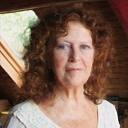 Monique Thiteux-Altschul is Executive Director at Fundación Mujeres En Igualdad. She is also Project Director for several international projects including: “7 Voices against Gender Violence” organised by the Vital Voices Partnership; “Human Rights for all: the rights of the LGBT community” funded by a grant from the US Embassy in Argentina; and “Organizing Women against Corruption” implemented with UNIFEM, funded by UNDEF, United Nations. Ms Thiteux-Altschul has been an active campaigner for human rights and has consulted several international organisations on Gender issues, Corruption and Human Trafficking.
Monique Thiteux-Altschul is Executive Director at Fundación Mujeres En Igualdad. She is also Project Director for several international projects including: “7 Voices against Gender Violence” organised by the Vital Voices Partnership; “Human Rights for all: the rights of the LGBT community” funded by a grant from the US Embassy in Argentina; and “Organizing Women against Corruption” implemented with UNIFEM, funded by UNDEF, United Nations. Ms Thiteux-Altschul has been an active campaigner for human rights and has consulted several international organisations on Gender issues, Corruption and Human Trafficking.
East Asia, Central Asia and Pacific Regional Seat
Transparency International Malaysia (TI-M) is an independent, non-governmental and non-partisan organisation committed to the fight against corruption. Founded in 1998, TI-M is registered with the Registrar of Societies Malaysia as the Malaysian Society for Transparency and Integrity (ROS: 1649) and is the accredited National Chapter of the Berlin-based Transparency International.
TI-M works with the private sector, civil society, government, media and wider public to combat corruption and promote integrity. Civil engagement is vital for our work and advocating for policy reform continues to be the change we need to see.
TI-M continues to pursue and fight for structural change that ensures social justice, cleaner institutions and transparent handling of public funds. We aim at working with all stakeholders, including the marginalized groups and the youth.
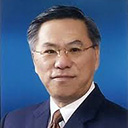 Dr. KM Loi has been a member of TI-Malaysia since 2000 and now serves as Deputy President. He served as Secretary-General for the 2013 – 2015 term, and has previously held positions as Committee Member (2002 – 2009, 2011 – 2013), and Secretary-General from 2008 – 2009. He has a mechanical engineering background with post-graduate management degrees (MBA & DBA), and 10 years of hands-on working technical experience in manufacturing. KM Loi also has 15 years of management skills in quality consulting, training, and auditing, and has expanded his experience and knowledge into Corporate Social Responsibility, Accountability, Ethics and Integrity components. KM Loi is also the Vice-Chair for ISO/PC 278 – Anti-Bribery Management System (ISO 37001).
Dr. KM Loi has been a member of TI-Malaysia since 2000 and now serves as Deputy President. He served as Secretary-General for the 2013 – 2015 term, and has previously held positions as Committee Member (2002 – 2009, 2011 – 2013), and Secretary-General from 2008 – 2009. He has a mechanical engineering background with post-graduate management degrees (MBA & DBA), and 10 years of hands-on working technical experience in manufacturing. KM Loi also has 15 years of management skills in quality consulting, training, and auditing, and has expanded his experience and knowledge into Corporate Social Responsibility, Accountability, Ethics and Integrity components. KM Loi is also the Vice-Chair for ISO/PC 278 – Anti-Bribery Management System (ISO 37001).
Europe Regional Seat 1
FOL Movement was established in 2009. Its chief mission is to contribute to good governance and anti-corruption through supporting and promoting active citizenship, and greater transparency and accountability of public institutions. FOL focuses its work on public expenditure, fighting various forms of corruption and institutional negligence, as well as in promoting accountability. Through policy research, advocacy, technical and institutional support, monitoring of public institutions, conferences, seminars, roundtables and other forms of mobilisation and networking, as well as debates and training programmes, FOL increases public pressure on decision-makers to reduce the abuse of public power. FOL also works to open up new channels of communication between government and citizens and seeks to reduce civic apathy. From 2010, FOL’s main objective has been to promote the fight against corruption in public procurement and to promote open contracting in Government. In 2012, FOL Movement initiated the process of Kosovo’s membership in the Open Government Partnership – OGP and became a co-chair of the membership process.
 Fidan Kalaja is Director of Programmes at FOL Movement and currently a co-chair of the Kosovo membership process in the Open Government Partnership – OGP. He has a degree in Psychology at the University of Prishtina. He coordinated research at the Research Agency, Prism Research from 2008 until 2010 and at the Institute for Psychological Research – IHP from 2006 until 2008. He previously worked as a Regional Analyst while contributing to the compilation of the Kosovo Human Development Report – Energy and Development, published by UNDP in 2007.
Fidan Kalaja is Director of Programmes at FOL Movement and currently a co-chair of the Kosovo membership process in the Open Government Partnership – OGP. He has a degree in Psychology at the University of Prishtina. He coordinated research at the Research Agency, Prism Research from 2008 until 2010 and at the Institute for Psychological Research – IHP from 2006 until 2008. He previously worked as a Regional Analyst while contributing to the compilation of the Kosovo Human Development Report – Energy and Development, published by UNDP in 2007.
Europe Regional Seat 2
Stefan Batory Foundation (SBF) is focused on building an open, democratic society – a society of people aware of their rights and responsibilities, who are actively involved in the life of their community, country and international society. Since 2000, the Foundation has run the Public Integrity Program (earlier the Anti-corruption Program). The Program focuses on efforts to ensure the transparency of the legislative process and opening it up to the voice of citizens; the limitation of the risks of corruption, nepotism and cronyism linked to the conflict of interest in public life; and to strengthen the role and legal protection of whistleblowers. The Program’s team monitors processes and events which affect the integrity of public life, and makes proposals and recommendations aiming at improving the standards of public life and curbing corruption. The team further takes measures to develop, disseminate and implement solutions which comply with the standard of good governance and accountable government. The Foundation cooperates with other organizations and institutions both in Poland and internationally.
 Grzegorz Makowski is the Program Director of the Public Integrity Program (earlier, in 2000-2002 the Coordinator of Anti-Corruption Program in the Foundation), and holds a PhD in Sociology. One of his academic specializations is the problem of corruption and anti-corruption policy. Mr. Makowski is the author of a number of publications on this topic – research reports, articles and journalistic texts. He is also involved in several research and monitoring projects focusing on corruption, among others the lead researcher for the Polish part of the European National Integrity System monitoring conducted by TI-Berlin (2010-2012). Earlier in 2010, he was also lead researcher for the Global Integrity Index in Poland. Currently he serves as Reviewer of the European Commission for the EU Anti-Corruption Report, and participated in the ANTICORP research project, funded by the EU.
Grzegorz Makowski is the Program Director of the Public Integrity Program (earlier, in 2000-2002 the Coordinator of Anti-Corruption Program in the Foundation), and holds a PhD in Sociology. One of his academic specializations is the problem of corruption and anti-corruption policy. Mr. Makowski is the author of a number of publications on this topic – research reports, articles and journalistic texts. He is also involved in several research and monitoring projects focusing on corruption, among others the lead researcher for the Polish part of the European National Integrity System monitoring conducted by TI-Berlin (2010-2012). Earlier in 2010, he was also lead researcher for the Global Integrity Index in Poland. Currently he serves as Reviewer of the European Commission for the EU Anti-Corruption Report, and participated in the ANTICORP research project, funded by the EU.
Middle East and North Africa Regional Seat
I WATCH is a Tunisian youth-led watchdog organisation aiming at enhancing transparency and fighting corruption. Founded in 2011, I WATCH has been advocating for more transparency and openness in the work of the government. In addition, I WATCH has been keen on engaging citizens in the fight against corruption. I WATCH has launched a number of online initiatives in order to hold decision-makers accountable.
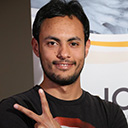 Achraf Aouadi is a 28-year-old international relations scholar. He is also founding president of the Tunisian watchdog organisation I WATCH. Since its establishment in 2011, Achref and I WATCH were very involved in the UNCAC mechanism of Tunisia. He was a member of the civil society that worked with the UNCAC focal point/team on the review mechanism. In addition, he was involved with the shadow report that I WATCH has published. Achref was present in both COSPs in Marrarkech and Panama.
Achraf Aouadi is a 28-year-old international relations scholar. He is also founding president of the Tunisian watchdog organisation I WATCH. Since its establishment in 2011, Achref and I WATCH were very involved in the UNCAC mechanism of Tunisia. He was a member of the civil society that worked with the UNCAC focal point/team on the review mechanism. In addition, he was involved with the shadow report that I WATCH has published. Achref was present in both COSPs in Marrarkech and Panama.
South Asia Regional Seat
The Institute of Governance Studies is a research, training and teaching institute at BRAC University, Dhaka, Bangladesh. For IGS, the concept of governance is best defined as the sum total of the institutions and processes by which society orders and conducts its collective or common affairs. BRAC, one of the largest NGOs in the world and the sponsor of BRAC University, has been active in administering innovative and effective development operations as well as research on development since 1972. The need for an exclusive institute equipped with recent innovations and practices in public policy and management of the contemporary world for the future leaders of Bangladesh became obvious in the 21st century. BRAC University established the then “Centre for Governance Studies” in 2005 (as of July 2007, the ‘Institute of Governance Studies’) as a pioneering institute in Bangladesh on Governance, offering a postgraduate degree, professional training, and undertaking research in areas of governance and development.
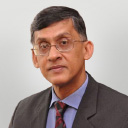 Manzoor Hasan received his Bachelors Degree in Economics from the London School of Economics and was then called to the English Bar from the Honourable Society of Lincoln’s Inn. He practiced civil and commercial law in England and Bangladesh. He was the founding Executive Director of Transparency International Bangladesh (1996 to 2003) and then the Regional Director (Asia-Pacific) of Transparency International in Berlin. Mr Hasan was awarded the Officer of Order of the British Empire (OBE) by Her Majesty Queen Elizabeth II in 2003 for his work on transparency. In 2004 Mr Hasan re-joined BRAC as its Deputy Executive Director. In 2006, Mr Hasan became the Founding Director of the Institute of Governance Studies, BRAC University, and since 2011 IGS’ Advisor. He has been an active member of civil society in Bangladesh for over two decades.
Manzoor Hasan received his Bachelors Degree in Economics from the London School of Economics and was then called to the English Bar from the Honourable Society of Lincoln’s Inn. He practiced civil and commercial law in England and Bangladesh. He was the founding Executive Director of Transparency International Bangladesh (1996 to 2003) and then the Regional Director (Asia-Pacific) of Transparency International in Berlin. Mr Hasan was awarded the Officer of Order of the British Empire (OBE) by Her Majesty Queen Elizabeth II in 2003 for his work on transparency. In 2004 Mr Hasan re-joined BRAC as its Deputy Executive Director. In 2006, Mr Hasan became the Founding Director of the Institute of Governance Studies, BRAC University, and since 2011 IGS’ Advisor. He has been an active member of civil society in Bangladesh for over two decades.
Sub-Saharan Africa Regional Seat 1
Transparency International Zambia works to contribute to the reduction of corruption in Zambia. Its vision, ‘A Zambia anchored on citizens and institutions of integrity.’ In the last 13 years since its inception, Transparency International Zambia has continued to use key events such as the UN commissioned International Anti-Corruption day as an opportunity to lobby Government to domesticate the UNCAC. Due to the various platforms successfully used by TIZ, such as public rallies, information displays, television and radio, the level of awareness on the UNCAC has increased in Zambia. The continued lobbying from TIZ and other stakeholders, has led the current government to increasingly domesticate the UNCAC. This has been done through various new laws such as the Public Interest Disclosure (Protection of Whistleblowers) Act No. 4 of 2010, the National Prosecution Authority Act No. 34 of 2010, the Financial and Intelligence Centre Act of 2010, the Forfeiture of Proceeds of Crime Act No. 19 of 2010 and Anti-Corruption Act 3 of 2012.
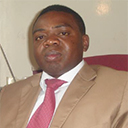 Goodwell Lungu is Executive Director for Transparency International Zambia and has been working in the anti-corruption field for the past 18 years. He holds two university degrees, one in Sociology and Development Studies from the University of Zambia in 1995. He also holds a Master of Philosophy Degree from the University of Cambridge in the United Kingdom where he specialized in public sector corruption prevention from 1999 to 2000. He is a fellow of the Cambridge Commonwealth Society. Prior to joining TI Zambia, Goodwell was Head of the Community Education Department at the Anti-Corruption Commission in Zambia where he worked from 1996 to 2004. He was country coordinator for a World Bank Youth for Good Governance Project in 2003 and was an Advisory Committee Member for the Drug Enforcement Commission’s Anti-Money Laundering Unit in 2004-2005. He has made presentations at both local and international anti-corruption fora/conferences/workshops and was a key adviser to the 12th International Anti-Corruption Conference (IACC) in Guatemala 2006.
Goodwell Lungu is Executive Director for Transparency International Zambia and has been working in the anti-corruption field for the past 18 years. He holds two university degrees, one in Sociology and Development Studies from the University of Zambia in 1995. He also holds a Master of Philosophy Degree from the University of Cambridge in the United Kingdom where he specialized in public sector corruption prevention from 1999 to 2000. He is a fellow of the Cambridge Commonwealth Society. Prior to joining TI Zambia, Goodwell was Head of the Community Education Department at the Anti-Corruption Commission in Zambia where he worked from 1996 to 2004. He was country coordinator for a World Bank Youth for Good Governance Project in 2003 and was an Advisory Committee Member for the Drug Enforcement Commission’s Anti-Money Laundering Unit in 2004-2005. He has made presentations at both local and international anti-corruption fora/conferences/workshops and was a key adviser to the 12th International Anti-Corruption Conference (IACC) in Guatemala 2006.
Sub-Saharan Africa Regional Seat 2
AfriCOG is an independent, non-profit making organisation with a mandate to provide cutting edge research on governance and public ethics issues and, monitor governance fundamentals in both the government and the private sector. AfriCOG’s governance and anti-corruption reform initiatives are aimed at addressing the structural causes of Kenya’s governance crisis by a knowledgeable citizenry.
AfriCOG’s mission is to be a leading think tank that will stimulate, influence and encourage society to address corruption and bad governance. To this end, AfriCOG engages in innovative information and knowledge brokerage, holistic capacity building, quality research, effective mobilization and vigilant monitoring and by retooling civil society to respond in a more sophisticated manner to complex governance problems. AfriCOG’s vision is of a Kenya in which civic vigilance over the management of public affairs is a permanent part of the national culture, and in so doing, pushes for increased access to information on all matters of public interest.
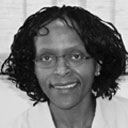 Gladwell Otieno has been involved in anti-corruption work since the late 90’s when she joined the Transparency International Secretariat in Berlin. She later led TI-Kenya until 2005, after which she founded AfriCOG. During her career Gladwell has contributed to holding the Kenyan government to account in various ways, including reviewing Kenya’s anti-corruption programme under Kibaki’s NARC Rainbow government, and moderating the “UNCAC Special Session: The Global Realpolitik of UNCAC Accountability” at the 14th International Anti Corruption Convention (IACC) in Bangkok, Thailand.
Gladwell Otieno has been involved in anti-corruption work since the late 90’s when she joined the Transparency International Secretariat in Berlin. She later led TI-Kenya until 2005, after which she founded AfriCOG. During her career Gladwell has contributed to holding the Kenyan government to account in various ways, including reviewing Kenya’s anti-corruption programme under Kibaki’s NARC Rainbow government, and moderating the “UNCAC Special Session: The Global Realpolitik of UNCAC Accountability” at the 14th International Anti Corruption Convention (IACC) in Bangkok, Thailand.
She has also served on the International Programme Committee of the 12th International Anti-Corruption Conference in 2006, as a member of the founding steering committee of the Open Government Partnership, and is a member of the board of the Global Initiative Against Transnational Organized Crime. She is also Vice Chairperson of the African Leadership Centre.
International Member Organisation Seat 1
ARTICLE 19, the Global Campaign for Free Expression and Information is a registered UK charity founded in 1987 with offices in Bangladesh, Brazil, Kenya, Mexico, Myanmar, Senegal, Tunisia and the USA. ARTICLE 19’s mission is “to promote, protect, develop and fulfill freedom of expression and the free flow of information and ideas in order to strengthen global social justice and empower people to make autonomous choices. Its vision is of a world where ALL people can speak freely, actively participate in public life and enjoy media freedom without fear, censorship or persecution.
ARTICLE 19 believes that freedom of expression, freedom of the press and access to information is a fundamental human right, central to individual freedoms and human rights. We also believe that freedom of expression is an empowerment or cornerstone right, in that it enables other rights to be protected and exercised. It allows people to demand the right to health, to a clean environment and to effective implementation of poverty reduction strategies. It not only increases the knowledge base and participation within a society but can also secure external checks on state accountability, and thus prevent corruption that thrives on secrecy and closed environments.
 David Banisar is Senior Legal Counsel for Article 19, Global Campaign for Free Expression in London. He leads the organisation’s efforts on transparency and access to information, focusing on the fields of development and environment. He has worked in the field of information policy for over 20 years and is the author of books, studies, and articles on freedom of information, freedom of expression, media policy, whistleblowing, communications security, and privacy. He has also served as an advisor and consultant to numerous organizations including the Council of Europe, World Bank, Organisation for Security and Co-operation in Europe, the UN Development Programme and the Open Society Institute.
David Banisar is Senior Legal Counsel for Article 19, Global Campaign for Free Expression in London. He leads the organisation’s efforts on transparency and access to information, focusing on the fields of development and environment. He has worked in the field of information policy for over 20 years and is the author of books, studies, and articles on freedom of information, freedom of expression, media policy, whistleblowing, communications security, and privacy. He has also served as an advisor and consultant to numerous organizations including the Council of Europe, World Bank, Organisation for Security and Co-operation in Europe, the UN Development Programme and the Open Society Institute.
Previously he was Director of the FOI Project at Privacy International, and a co-founder and Policy Director of the Electronic Privacy Information Center in Washington, DC. He has been a Research Fellow at the Kennedy School of Government at Harvard University, a Non-Resident Fellow at the Center for Internet and Society at Stanford Law School and a Visiting Research Fellow at the School of Law, University of Leeds. He has a Juris Doctor in Law and Public Policy from The Columbus School of Law, The Catholic University of America in Washington, DC.
International Member Organisation Seat 2
Global Financial Integrity (GFI) promotes national and multilateral policies, safeguards, and agreements aimed at curtailing the cross-border flow of illegal money. In putting forward solutions, facilitating strategic partnerships, and conducting groundbreaking research, GFI is leading the way in efforts to curtail illicit financial flows and enhance global development and security. Our mission stems from the estimate that $1 trillion in funds which are illegally earned, transferred or utilized are spirited out of developing countries annually. Of this, $500 billion a year ends up in western accounts. This constitutes the most damaging economic condition hurting the poor. Illicit capital flows enable drug cartels, terrorist organizations and tax evaders to move cash around the globe, undermines the goals of the World Bank and other lending institutions, strips developing nations of critical resources, and contributes to failed states.
 Christine Clough is a Program Manager at Global Financial Integrity (GFI). She manages GFI’s research and event contracts, contributes to reports, and supports advocacy work on financial transparency, especially related to development and security challenges. Prior to joining GFI, Christine was employed most recently at the U.S. Small Business Administration’s Office of Advocacy, working with Congress, Federal agencies, and the White House to advocate for the needs and critical role of small business in the U.S. economy. Christine also has experience working on terrorism and homeland security at think-tanks in Washington, DC. Christine has a BA in International Relations and Economics from Connecticut College and a MA in Security Studies from Georgetown University.
Christine Clough is a Program Manager at Global Financial Integrity (GFI). She manages GFI’s research and event contracts, contributes to reports, and supports advocacy work on financial transparency, especially related to development and security challenges. Prior to joining GFI, Christine was employed most recently at the U.S. Small Business Administration’s Office of Advocacy, working with Congress, Federal agencies, and the White House to advocate for the needs and critical role of small business in the U.S. economy. Christine also has experience working on terrorism and homeland security at think-tanks in Washington, DC. Christine has a BA in International Relations and Economics from Connecticut College and a MA in Security Studies from Georgetown University.
Individual Member Seat
 Shaazka Beyerle Shaazka Beyerle is a researcher, writer and educator in citizen engagement and people power. She is a Senior Advisor, International Center on Nonviolent Conflict (ICNC) and a Visiting Scholar, Center for Transatlantic Relations, School of Advanced International Studies, Johns Hopkins University. Following extensive research, she’ll be publishing a book in autumn 2013 entitled, “How Citizens Confound Corruption: People Power to Gain Accountability, Rights and Justice.”
Shaazka Beyerle Shaazka Beyerle is a researcher, writer and educator in citizen engagement and people power. She is a Senior Advisor, International Center on Nonviolent Conflict (ICNC) and a Visiting Scholar, Center for Transatlantic Relations, School of Advanced International Studies, Johns Hopkins University. Following extensive research, she’ll be publishing a book in autumn 2013 entitled, “How Citizens Confound Corruption: People Power to Gain Accountability, Rights and Justice.”
Coalition Secretariat (Permanent Seat)
Transparency International – Secretariat (TI-S), the global civil society organisation leading the fight against corruption, brings people together in a powerful worldwide coalition to end the devastating impact of corruption on men, women and children around the world. Through its International Secretariat in Berlin, Germany, and more than 90 national chapters around the world, Transparency International works at the national and international levels to create change towards a world free of corruption. The TI Secretariat focuses on the global and regional fight against corruption, and assists national chapters in enhancing their anti-corruption skills. It coordinates initiatives within geographical regions and provides methodological support on the tools and techniques to fight corruption. It also serves as the driving force on international issues such as anti-corruption conventions, and other cross-border initiatives. It serves as a knowledge management centre, capturing and disseminating best practice and developing new approaches to tackle corruption. The TI Secretariat has provided secretariat support to the UNCAC Coalition since the Coalition’s creation in 2006 and has coordinated the Coalition’s work at the UNCAC Conference of States Parties in 2006, 2008 and 2009.
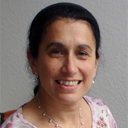 Gillian Dell studied law at the University of California-Berkeley and at the Université Libre de Bruxelles and has a BA degree from Oxford University. Prior to joining TI in 1997, she worked as a lawyer in a New York law firm; as a research fellow on international trade law issues at the Freie Universität Berlin; as a consultant at the United Nations; and as a law lecturer and administrator at an American university study centre in Berlin. She has also worked with several human rights organisations. She currently manages the TI International Conventions programme, which covers international anti-corruption instruments including the UN Convention against Corruption. In 2006, together with Kirstine Drew of UNICORN – the Trade Union Anti-Corruption Network, she co-convened the UNCAC Coalition (originally called the Coalition of Civil Society Friends of the UNCAC) and continued to serve as convenor up to the election of the Coordination Committee in April 2011. She is the author of articles and opinion pieces on international trade, UNCAC and foreign bribery and for the last seven years has co-authored the TI Progress Report on OECD Convention Enforcement.
Gillian Dell studied law at the University of California-Berkeley and at the Université Libre de Bruxelles and has a BA degree from Oxford University. Prior to joining TI in 1997, she worked as a lawyer in a New York law firm; as a research fellow on international trade law issues at the Freie Universität Berlin; as a consultant at the United Nations; and as a law lecturer and administrator at an American university study centre in Berlin. She has also worked with several human rights organisations. She currently manages the TI International Conventions programme, which covers international anti-corruption instruments including the UN Convention against Corruption. In 2006, together with Kirstine Drew of UNICORN – the Trade Union Anti-Corruption Network, she co-convened the UNCAC Coalition (originally called the Coalition of Civil Society Friends of the UNCAC) and continued to serve as convenor up to the election of the Coordination Committee in April 2011. She is the author of articles and opinion pieces on international trade, UNCAC and foreign bribery and for the last seven years has co-authored the TI Progress Report on OECD Convention Enforcement.



